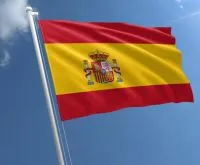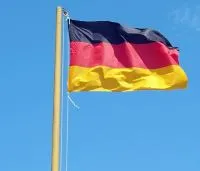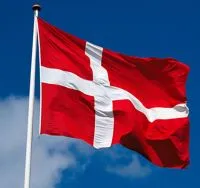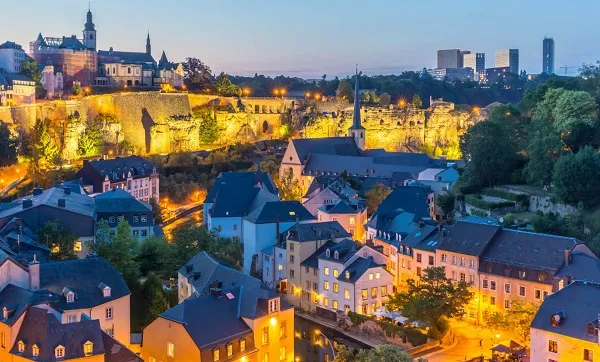
When it comes to producing steel, Luxembourg is among Europe's leaders. Its primary economic activity is large-scale private banking and finance. The city of Luxembourg serves as the capital. Despite its size, the country is one of Europe's wealthiest. There are three official languages in Luxembourg: French, German, and Luxembourgish. Besides Luxembourgish, most people also speak French, German, or English. Luxembourgish is the official language of the country. The city of Luxembourg and its surrounding fortifications have been designated as a World Heritage Site by UNESCO since 1994. Public transportation in Luxembourg has been free of charge since March 2020. Transportation on buses, trains, and trams inside Luxembourg is free, with the exception of first-class tickets.
Although tiny, Luxembourg is widely recognized as a global financial powerhouse. As a result of serving a large number of foreign clients, banks based in Luxembourg are regularly entrusted with substantial sums of money. About 120 of the 147 banks in Luxembourg are branches or subsidiaries of international banks. The Portuguese community in Luxembourg is the largest among non-nationals. French, Italian, Belgian, and German speakers all make up sizable portions of the non-native population. About 6,50,000 people call Luxembourg home. The Grand Duke or Grand Duchess of Luxembourg serves as the country's head of state. Luxembourg is a progressive country that has legalized same-sex marriage, medical marijuana. Xavier Battle made history when he was re-elected as the first openly gay Prime Minister anywhere in the world.
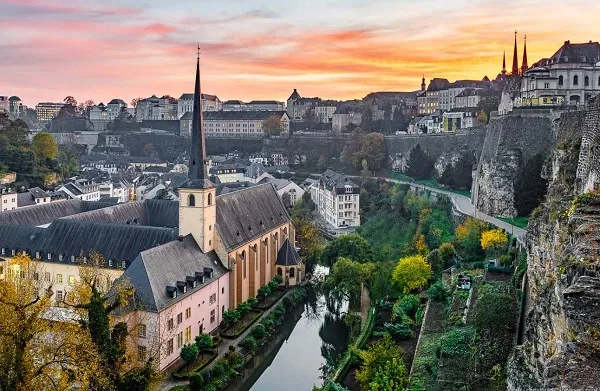
Despite its reputation as a wealthy haven, the cost of living in Luxembourg is very low. When compared to Belgium and Germany, living costs in Luxembourg are 19% and 17% higher, respectively. While the cost of living in Luxembourg is 7.72% more than in Los Angeles, the cost of renting a home there is 13.19% lower. It's the safest place in Europe and second safest in the world after Singapore. Border hopping is a great way to spend time in Luxembourg. Border crossings between neighboring countries are typically uncomplicated.
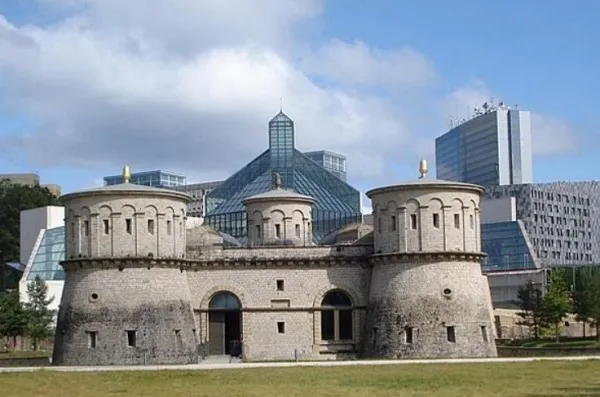
Luxembourg was inhabited by Belgic tribes, Romans, and Franks. Although it achieved independence in 1867, Luxembourg was occupied by Nazi Germany in 1940. The wines of Luxembourg are highly regarded. The Cremant de Luxembourg is Luxembourg's most renowned wine. The country with the highest per capita car ownership rate is still Luxembourg. There are roughly 647 car owners for every 1,000 people. Volkswagens, PSAs, and BMWs dominate the Luxembourg auto market. One of the most well-known UNESCO World Heritage Sites in all of Luxembourg may be found beneath the country's capital: a tunnel system that stretches for 17 kilometers. The health and welfare systems in Luxembourg receive one-third of the country's GDP. The health care system in Luxembourg is state-funded and insurance-based, making it one of the greatest in the world.
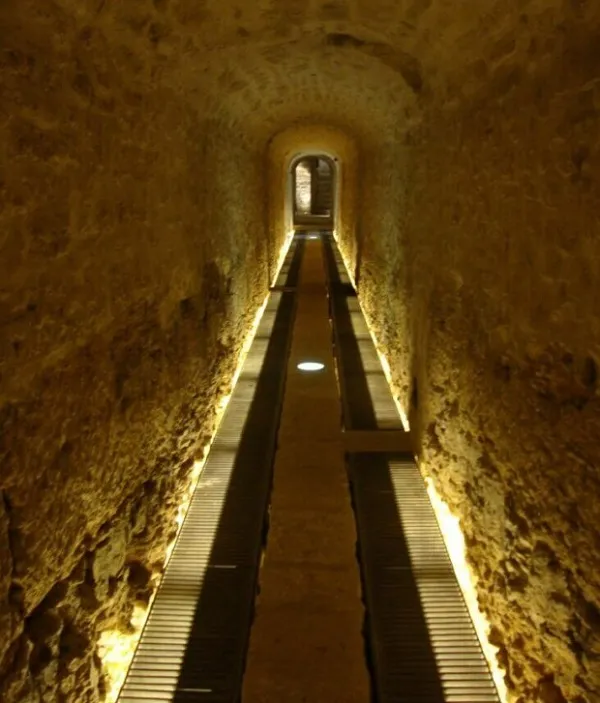
The tricolor flag of Luxembourg is well-known for its resemblance to the flag of the Netherlands. The year 1972 marked the official adoption of the flag of
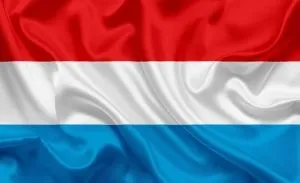
Both Luxembourg and the Netherlands can be considered independent states. The government of Luxembourg backs global initiatives to improve living standards for all people, cut poverty in half, and spread wealth more evenly. In Luxembourg, the Euro is used. The minimum salary in Luxembourg is the highest in the European Union. The starting salary for employees here is 1,923 Euro per month. It's a tiny country in Western Europe that can't access the ocean.
According to the 2019 Global Financial Centres Index, Luxembourg's financial hub is the third most competitive in Europe, behind only London and Zürich. A prime minister serves as head of government in the Grand Duchy of Luxembourg, a parliamentary constitutional monarchy. The 12th century marked the first time Luxembourg could be properly classified as a town. It expanded beyond its surrounding mountains and valleys to become a regional economic, political, and religious hub. Through marriage, land acquisition, vassalage ties, and war, the Counts of Luxembourg were able to rapidly expand their fortune.
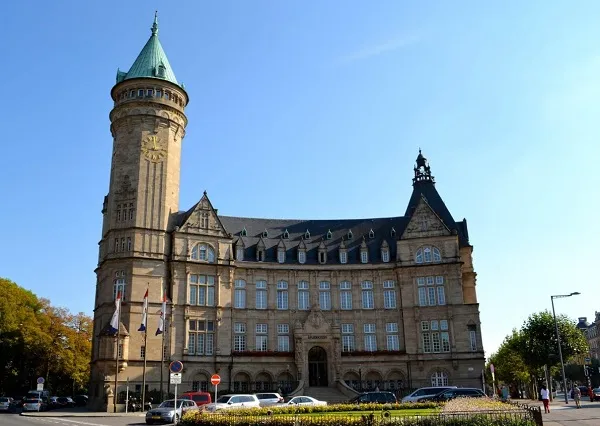
While the capital city of Luxembourg is where most of the world's biggest shows are staged, the country as a whole is peppered with theaters and cultural centers that present a wide range of high-quality performances. The cultural players in Luxembourg understand the significance of providing youngsters with access to works of art. Luxemburg's many castles offer more than just a glimpse into the country's past; they also house museums, host medieval and music festivals, and provide access to beautiful hiking trails. The territory of Luxembourg has long been desired by powerful nations. Many fortifications were constructed over the years to safeguard the area from invaders, these can now be seen as a valuable historical resource. The Luxembourg Reception Agency and a plethora of nongovernmental organizations and groups are here to assist you in settling in and working toward the goal of universal respect for and appreciation of all cultures. In a country whose residents represent more than 170 different nationalities, efforts like these help ensure that everyone in Luxembourg feels at home. The social security system of Luxembourg is among the most comprehensive in the world.
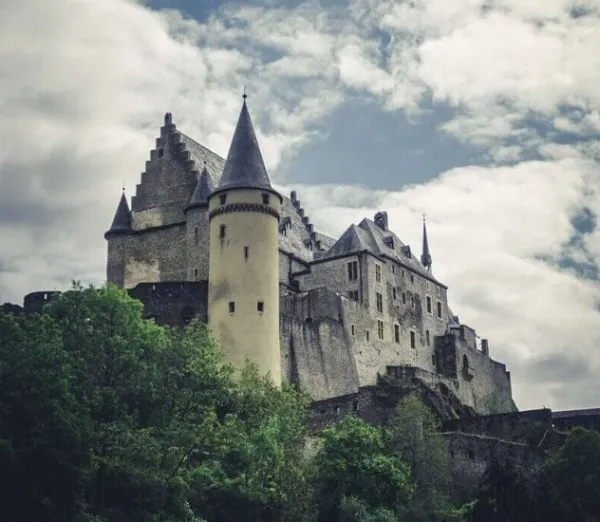
If you work in the Grand Duchy, whether you're an employee or a sole proprietor, you must join the Social Security Centre (CCSS).All of your loved ones are protected by our policy. Many people are looking for housing in the Grand Duchy. Every day of the year, the Housing Observatory analyzes the availability and cost of homes and vacant land for construction. Despite Luxembourg's compact size, the variety of ecosystems you'll experience there will leave you feeling confident that you've found your ideal home. The Grand Duchy of Luxembourg reaffirms its support for the right to housing as an essential element of social harmony. Affordably priced rental housing is accessible from a variety of sources, including the private market, publicly held property developers, and governments. It's clear that Luxembourg has put a lot of money into its wired and wireless networks. As 5G and fiber optics networks expand rapidly, 4G and broadband everywhere enable quick internet access. When it comes to connection, Luxembourg is already among the finest in Europe. Almost the entire country of Luxembourg is covered by a mobile network. Many cities in Luxembourg offer free public WiFi. Recently placing in the top 20 of the European Fibre Home Penetration Ranking, with over 20% of homes in Luxembourg having access to these networks, Luxembourg is investing extensively in the extension of its fibre optics network (Fibre To The Home, or FTTH).





